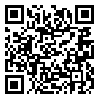BibTeX | RIS | EndNote | Medlars | ProCite | Reference Manager | RefWorks
Send citation to:
URL: http://jae.hormozgan.ac.ir/article-1-188-en.html
Salinity adaptation and sea water tolerance are vital, challenging phenomena in the life history of anadromous species such as kuttum fish. Evaluation on feed deprivation in gill chloride cell development of kuttum fish is the aim of this study. Kuttum juveniles that weighed an average weight of 0.5 grams were divided into two groups. One group (control) was fed ad libitum during the experiment. Fish in the other group were feed deprived. Both groups were exposed to the salinity challenge for 7 days. Gill sampling was performed on the second, third, fourth, and seventh days after salinity challenge initiation. Consequently, we evaluated Na+ K+ ATPase activity, gill chloride cell numbers and size. Results showed a significant decrease in gill Na+ K+ ATPase activity, chloride cell diameter, perimeter and area due tofasting. Based on the obtained results we concluded that feed deprivation might have a disruptive effect on chloride cell development during seawater adaptation.
| Rights and permissions | |
 |
This work is licensed under a Creative Commons Attribution-NonCommercial 4.0 International License. |

This work is licensed under a Creative Commons — Attribution-NonCommercial 4.0 International (CC BY-NC 4.0)






